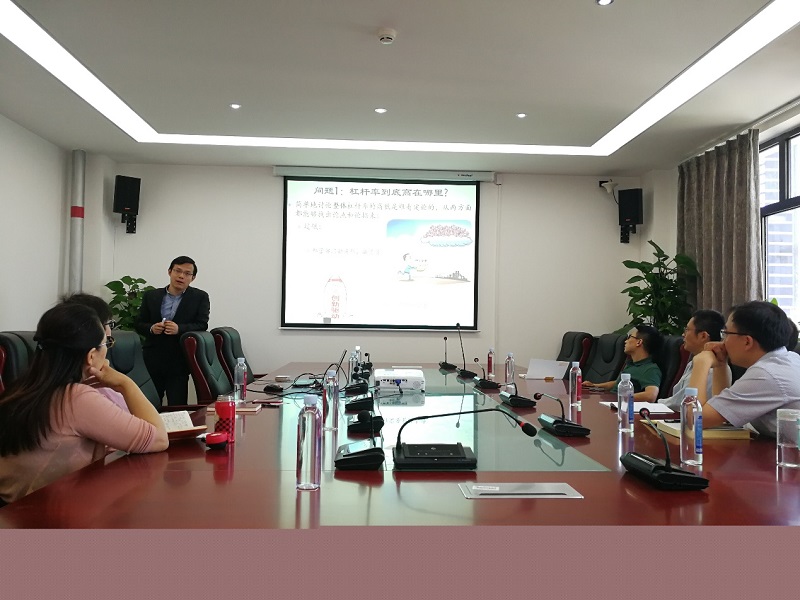 Research Update
Research Update
29
MayOn the morning of May 18, 2018, NADS held 9th “Theory and Policy” Seminar. The guest speakers invited are Prof. Zhong Ninghua, Director of Department of Economics and Finance, Tongji University.

At the seminar, Professor Zhong Ninghua introduced his study "Structural Issues of Corporate Debt in China". At the beginning of the seminar, he threw a question. Should our country's economy be de-leveraged or leveraged? Through a series of data analysis, Professor Zhong focused his attention on the debt problems of Chinese enterprises. Based on an analysis of the debt ratio of nearly 4 million Chinese industrial enterprises above designated size during the period 1998-2013, his article provides three pieces of evidence to provide an initial answer to this question. First of all, how high is the leverage rate? They found that during the 16-year period, the sample companies showed a significant and overall trend of deleveraging, and the average debt ratio continued to drop from 65% in 1998 to 51% in 2013; at the same time, significant increases were noted. Leveraged are thousands of large, state-owned, listed companies. Second, does the change in leverage rate have the support of corporate fundamentals? They found that the relationship between the enterprise characteristics of private companies and their debt ratios is highly consistent with Western companies; however, firm-level factors are less likely to explain the debt ratio of state-owned companies. Third, how does the capital provider influence the debt ratio of the company? Their results show that, on the one hand, the allocation of funds to the state-owned enterprises tends to be more and more biased; on the other hand, the phenomenon that the “zombie” companies with negative profits are more likely to obtain loans may exist before 2008, and become more obvious even after 2008.
Professor Zhong believes that merely discussing macro-level leverage or deleveraging will not yield constructive results. The deleveraging should be a structured deleveraging. First, for some companies that are mainly private companies, their financing decisions are, as a whole, in line with the principle of marketization; they should ensure adequate supply of capital so that companies with basic support can borrow money. Second, there is a large number of "non-market" factors in the determinants of the liabilities of another part of the state-owned enterprises. It is necessary to stop continual blood transfusions for inefficient state-owned enterprises as soon as possible so that new loans can be allocated to the most efficient companies. Third, in the case of the current high total debt ratio, it is necessary to make good use of such a valuable resource as new credit.
The seminar was presided over by Liu Xiaoguang, a teacher from NADS. Many teachers and classmates from both inside and outside the school attended the seminar, and had an in-depth discussion with the keynote speakers on relevant issues.
(Article from Division of Teachers and Post-Doctor Affairs, NADS; Photo/Writing: Intern Liang Kun)